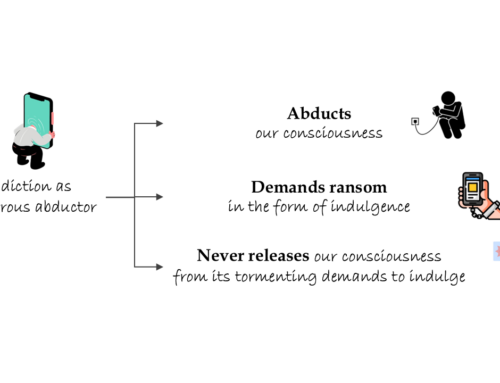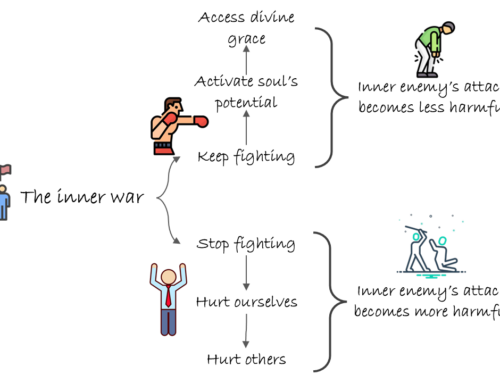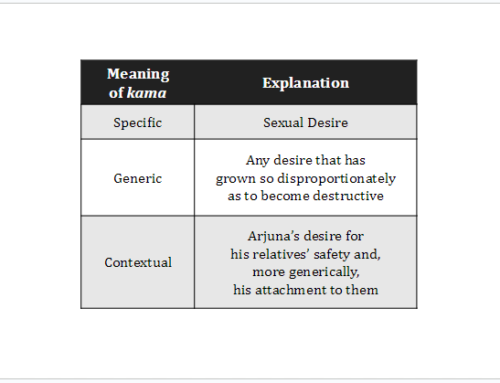We sometimes get impure desires such as sexual attraction towards someone.
Many people choose to fulfill these impure desires privately through various secret arrangements. By delighting in immorality covertly while parading a façade of morality, they fall into hypocrisy.
Some other people choose to fulfill these impure desires publically. They use vulgar language freely, become sexual exhibitionists and engage brazenly in flirtations and affairs. They claim to be bolder than the hypocrites who do the same things secretly. But what is the end-result of their ‘boldness’? People become sexually hyper-agitated. When everyone starts seeing everyone else as a potential sex object and acting accordingly, no one can trust anyone else. The marital bond becomes fractured and ruptured; family offers little, if any, emotional closeness; people become incurably lonely; no relationships remain sacred; sexual abuses become common, even among relatives. Thus, public pandering to impure desires propels society to perversity.
Gita wisdom offers us a third alternative beyond hypocrisy and perversity: purity, a state of the heart wherein we don’t experience any impure desires. Such a state may be far away from us right now, but spiritual culture offers us a safe and accessible pathway to get there. The Bhagavad-gita points to such a culture when it acknowledges (03.36) the inbuilt presence of attraction between the senses and the sense objects, but then cautions us against becoming controlled by that attraction.
Spiritual culture provides us an external environment where worldly agitations are minimized and other-worldly attractions to Krishna are maximized. Additionally, it provides us two internal empowerments. Scriptural study gives us the intellectual conviction to restrain impure desires. Remembrance of Krishna purifies us, gradually reducing and removing those desires.
Using the bridge of spiritual culture, we can walk away from hypocrisy and perversity, and attain purity.
Bhagavad Gita Chapter 03 Text 36
“Arjuna said: O descendant of Vrsni, by what is one impelled to sinful acts, even unwillingly, as if engaged by force?”




Leave A Comment